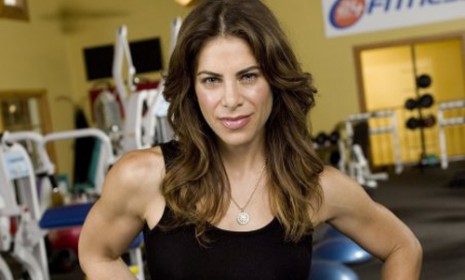The Biggest Loser adds teenage contestants: Bad idea?
NBC's often brutal weight-loss reality series is shaking up its 14th season by tackling childhood obesity — and going softer on the kids

A free daily email with the biggest news stories of the day – and the best features from TheWeek.com
You are now subscribed
Your newsletter sign-up was successful
After a two-year hiatus, household-name trainer Jillian Michaels is bringing her tough-love fitness approach back to NBC's The Biggest Loser — in time for a new twist: teenage contestants. On Tuesday, Michaels announced that she agreed to return to the reality TV weight-loss competition after producers committed to addressing childhood obesity. When the show's 14th season premieres in January 2013, it will feature three teams of six contestants, at least one of whom will be a teenager aged 13-17. The controversial move has, predictably, provoked commentators. Here, 5 talking points:
1. After 14 seasons, the series needed to tackle the child obesity epidemic
Childhood obesity "is obviously something that needs to be handled with kid gloves, but it's something that needs to be handled," says Michaels in an interview with Al Roker on TODAY. As a former overweight child, she says the subject is a personal passion of hers. To ensure that the show's treatment of teen obesity is "delicate and appropriate," The Biggest Loser's producers have also consulted pediatricians and child psychologists.
The Week
Escape your echo chamber. Get the facts behind the news, plus analysis from multiple perspectives.

Sign up for The Week's Free Newsletters
From our morning news briefing to a weekly Good News Newsletter, get the best of The Week delivered directly to your inbox.
From our morning news briefing to a weekly Good News Newsletter, get the best of The Week delivered directly to your inbox.
2. The teens will play by a different set of rules
The Biggest Loser is legendary for its sometimes brutal weight-loss techniques and on-camera weigh-ins, but "teens won't be subjected to quite the same public humiliation as the overweight adults," says Ann Oldenburg at USA Today. Teens won't be eliminated, and their weigh-ins won't be shown on the air; while the adult contestants are driven to lose, lose, lose, the goal with the teens "is to focus on the kids' health rather than their weight," and to do so in "the most positive and effective way possible."
3. But make no mistake — this is also about ratings
Though NBC and Michaels have expressed genuine concern about the rising childhood obesity rate, ratings are almost certainly a factor: Network brass announced in May that they were delaying The Biggest Loser's 14th-season premiere until January 2013 to give the series "time to reboot in the face of declining ratings," says Nellie Andreeva at Deadline. Michaels' return to The Biggest Loser means that the series has recovered "one of its most recognizable stars," and the new focus on child obesity has garnered media attention that The Biggest Loser has lacked in recent seasons. One looming question: Whether introducing contestants who are exempt from the rules will trigger a viewer backlash.
A free daily email with the biggest news stories of the day – and the best features from TheWeek.com
4. Teen obesity experts aren't sold on the idea
"I have concerns about this announcement," says Dr. Rebecca Puhl, the Director of Research and Weight Stigma Initiatives at Yale University, in an interview with Hillary Reinsberg at BuzzFeed. The Biggest Loser's traditional motivational tactics, which include yelling at contestants and encouraging exercise "to the point of illness and exhaustion," are particularly dangerous for teenagers both physically and mentally. And even if the teens aren't subjected to the same treatment, the show's basic premise "still communicates that being a winner ultimately means losing the most weight." If NBC really wants to help combat childhood obesity, they should "educate and promote activism" — not get teens involved in a weight-loss competition.
5. And parents aren't convinced, either
"I'm a little uncomfortable with the idea of weight loss competition being directed at teens," says Lindsay Cross of Mommyish.com. Michaels has "a notoriously firm approach" that has made her an effective and entertaining personality, but her battle mode may be too insensitive for teens, who should be focused on "health and body acceptance," not weight loss. If The Biggest Loser doesn't manage to adjust its methods, it "could face a lot of criticism from parents who don’t want to see teens’ self-esteem destroyed in the name of fitness."
-
 The Week contest: Lubricant larceny
The Week contest: Lubricant larcenyPuzzles and Quizzes
-
 Can the UK take any more rain?
Can the UK take any more rain?Today’s Big Question An Atlantic jet stream is ‘stuck’ over British skies, leading to ‘biblical’ downpours and more than 40 consecutive days of rain in some areas
-
 The UK expands its Hong Kong visa scheme
The UK expands its Hong Kong visa schemeThe Explainer Around 26,000 additional arrivals expected in the UK as government widens eligibility in response to crackdown on rights in former colony